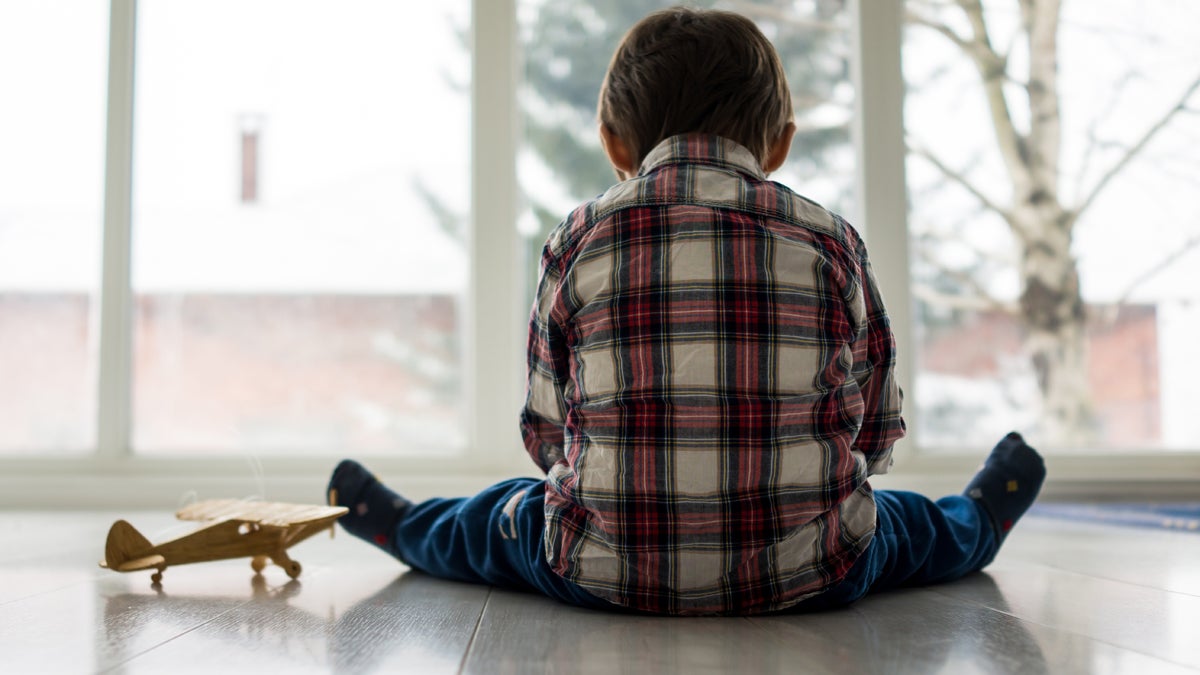Kids on antipsychotic meds more prone to diabetes, CHOP researchers find
Listen Photo via ShutterStock) " title="sssadchildx1200" width="1" height="1"/>
Photo via ShutterStock) " title="sssadchildx1200" width="1" height="1"/>
(Photo via ShutterStock)
A new study of 1.3 million American children has found that certain antipsychotic medications raise their risk of type 2 diabetes.
The drugs fall into a category of “second generation” antipsychotics, and include brand names such as Risperdal, Seroquel, and Abilify, which are well known to cause weight gain.
To evaluate whether that side effect goes so far as to influence diabetes risk in kids, researchers at the Children’s Hospital of Philadelphia Policy Lab turned to Medicaid data, and found antipsychotic users were 50 percent more likely to develop diabetes.
“The use of antidepressants alongside antipsychotics raises the risk for diabetes even higher, effectively doubling the risk for diabetes compared to children who use neither medication,” said Amanda Kreider, a research associate at the Policy Lab and an author of the study, published this week in the journal JAMA Pediatrics.
The elevated risk should be taken seriously, she added, but not overblown. Type 2 diabetes is relatively rare in young people, affecting only one out of every 400 adolescents. With combined antipsychotic and antidepressant use, that risk rises to, at most, one in every 200.
“The risk is small, but it’s not negligible,” said Kreider. “The risk could be even higher for children exposed to medication for longer periods of time.”
In the last two decades, antipsychotic prescription rates have been rising for kids, and low-income and foster children are the primary users of the drugs.
“Trauma-based therapy should also always be a key part of the equation,” said Kreider. “Sadly, that’s not always an accessible option for children.”
Too often, she said, children are prescribed the powerful drugs for disruptive behavior. But the Policy Lab is wary of pushing for stricter controls out of fear the children who do need the drugs won’t be able to get them.
“We recommend beginning with the lowest dose possible, and monitoring for side effects like weight gain or abnormal lab tests,” said Kreider.
Phil Lubitz, the associate director of the New Jersey chapter of the National Alliance on Mental Illness, noted that the majority of antipsychotic prescriptions for kids come from general practitioners or pediatricians rather than psychiatrists.
“One of the things that we’ve been advocating for is programs that would extend the reach of child psychologists to consult with these prescribers,” he said, with the goal of cutting down on unnecessary prescriptions.
WHYY is your source for fact-based, in-depth journalism and information. As a nonprofit organization, we rely on financial support from readers like you. Please give today.

